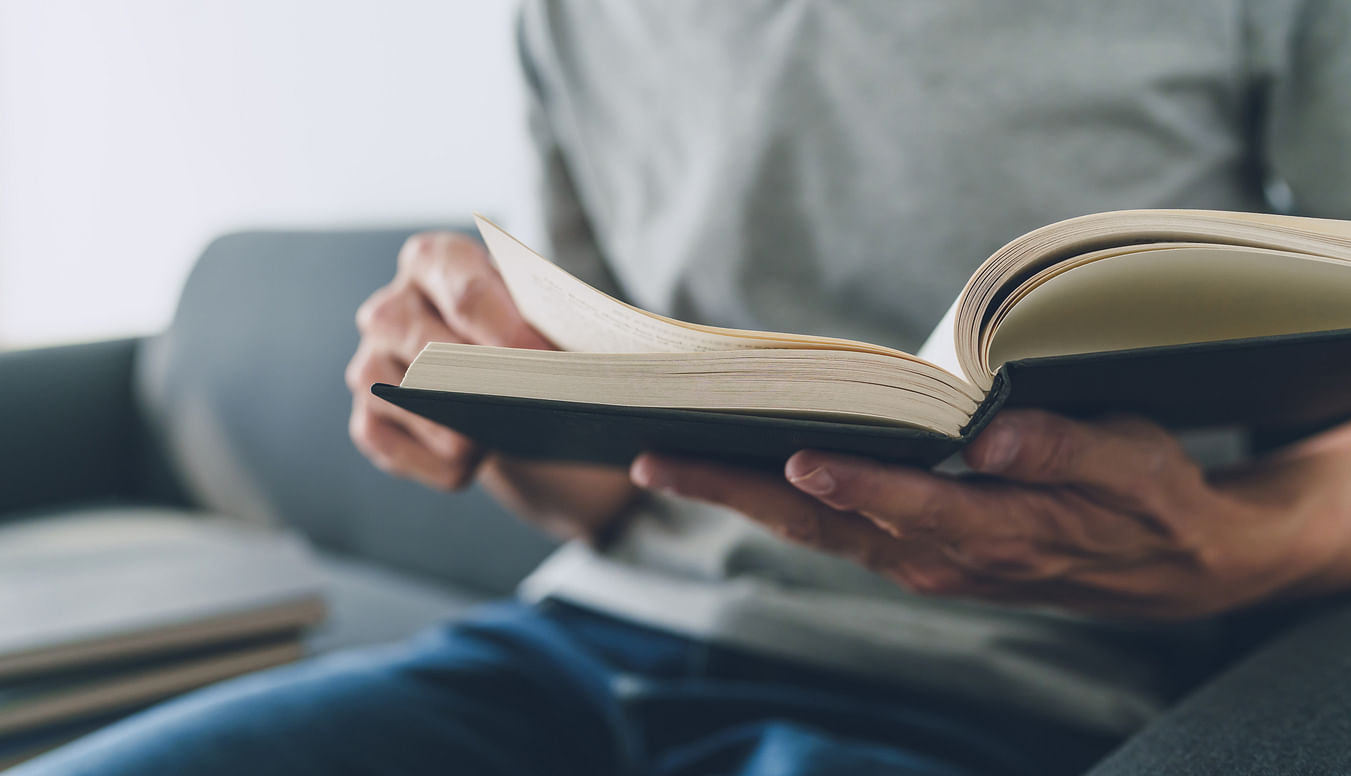
Representative image showing a person reading a book.
Credit: iStock Photo
The Reading Room, a government-run library on Reading Room Road (no surprise), was an oasis for book enthusiasts in the small town of Arsikere. It had a good collection of Kannada books and a motley set of English books that included R K Narayan, Gandhi, and Thackeray, among others. It also subscribed to many magazines and newspapers. An early memory is of sitting on a bench in the outer room and reading an article that described, or perhaps referenced in some detail, the dramatic capture of Adolf Eichmann by Israeli agents in Argentina, his secret transport to Israel, and his trial. This piqued my interest in all things Israel.
Reinforcing this interest was the circulating library, our source for the then-popular paperbacks by Alistair Maclean, Irving Wallace, and the like. Exodus, by Leon Uris, was their fattest book. A friend dared me to read the whole book, around 700 pages, and I took him up on it. It had to be read quickly, or else the library fees would accumulate. The book was fascinating enough for me to not only read but also reread. It tells the spectacular (fictionalised, as I learn later) story about how Palestine was settled by Jews and eventually became the state of Israel.
The interest was cemented by a third source. On my way to meet my friends every evening, I would usually pass by the book shack at our bus stand, gawk at the covers of books by James Hadley Chase, and wonder what the many books by Cheiro were all about. The owner, being a family friend, usually lent us magazines and books for overnight reading.
Once I took home Ninety Minutes at Entebbe, much slimmer than Exodus. This book is about the rescue operation by Israeli agents of hostages in a hijacked plane that was parked in faraway Uganda, overseen by the hijacker-friendly Idi Amin.
I was now fixated on Israelis. News about Golda Meir and the inevitable comparison with Indira Gandhi, the secret visits of Moshe Dayan (he with the eyepatches) to India, and many other stories now came into focus. And then I started exploring Jewish writers; Saul Bellow and Isaac Singer are still my favourites. Later in life, when I came to Mumbai, and the Jew bug continued. I visited the local synagogues, discovered the legacy of David Sassoon (Flora Fountain, his library, and docks), read up on Nissim Ezekiel and his poems, was thankful for the leadership of Gen J F R Jacob, and even had a Jewish student.
I must thank Payal, a Baarati horse, for this reminiscence. Recently, Payal broke loose from its handler and started trotting down Worli Sea Link before it was apprehended and brought under control by some Israeli tourists -- in character with the persona of an Israeli that I had built up. I was thankful for the three wonderful institutions in a small town that started me on a reading habit before TV, computers, and phones changed it all forever.